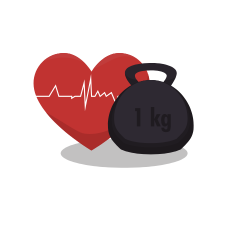
Introduction
Do you feel tired even after doing a small task? Or do you wake up not feeling fresh? Or do you prefer sitting all the time? There are five reasons why you always feel tired. I will also share remedies to fix these issues.
Consider an example of your car. You insert the key into the ignition, but it doesn’t start. Now, if you check and find that the battery is low, you have successfully identified the real reason. You charge the battery, and your car rolls again. When you know the reason behind the problem, the solution becomes a cakewalk.
Fatigue is not merely a psychological problem. It has more to it. So, let’s talk about five fundamental reasons why you always feel tired.
1. You are Overeating-
Yes, overeating is a big reason behind this. Why do we eat? To feel energised right, But if you feel tired and lazy after eating, you most likely overeaten. It’s not that body that doesn’t tell you. In fact, when your body is actually full, it tries to notify you, but just like those banking app OTPs, these notifications come late.
When we overeat or constantly munch on things, the body has to spend a lot of its energy digesting it. As a result, the energy reservoirs deplete and we feel low and sluggish. On the flip side, if you eat at fairly fixed times and keep the meals light, you will instantly feel energised.
The next time, eat judiciously and try not to eat full. Try this. For just one day, willingly keep the portion size of your meals smaller, and you will be surprised at how full of energy you will be on that day.
According to Ayurveda, reduce your intake of heavy foods like cheese, cream, nut butter, and other deep-fried foods if you lack energy. Practising intermittent fasting is a practical way to keep the body light naturally.
Intermittent fasting This keeps the body in a fast state for 15 hours. In sync with nature’s clock(Circadian rhythm), by practising intermittent fasting like this, the body gets enough time to rejuvenate itself.
2. Your sleep quality is poor.
Does it happen to you that even after sleeping for 8 hours, you don’t feel like waking up in the morning? You are already feeling tired. You hit that snooze button. You are yawning and feeling tired. If yes then your sleep quality is low. But wait! How did this happen?
Probably, you are not sleeping at the right time. It doesn’t matter when you sleep, as long as you sleep enough. Don’t believe this. It’s a myth. It does matter when you sleep.
Modern studies and Ayurveda consider 10 PM to 12 midnight as precious hours for sleep. You might have heard the phrase, an hour before midnight is worth two after. So try to wind up early. Certain foods, especially coffee, hinder your sleep quality.
The weird thing about caffeine is that it has a half-life of 6 hours. This means that if at 4 PM, you had the last cup of coffee. At 10 PM, you will still have half a cup of coffee. At 4 AM, a quarter cup of coffee will still be in your system. Now, this little caffeine doesn’t let you go into deep sleep.
If there are some medical issues (insomnia) is there, one can always practice Yoga Nidra for deep sleep along with his/her medications.
So, it is best to avoid coffee after 12 PM noon. Eating heavy dinner is another common reason that messes up sleep quality. At night, our body expects rest. But a heavy meal puts an undue load on it, so it must work to digest it. This is why even after sleeping for eight long hours, you feel tired and just don’t feel rested.
3. You are inactive-
How do most of us spend most of our time of our day? No prizes for guessing that. Sitting. Be it on the bed, in the car, on the chair, on the couch, or on the bed. We are sitting all day. Prolonged sittings make the body weak and feel tired.
That is why, considering our current lifestyle, daily exercise is non-negotiable. But many people think that not exercising will make us more exhausted if we are already tired. Well, it’s quite the opposite.
Not using the brain makes it dull, and not moving the body daily makes it sluggish. It’s proven today that when we keep the body active, our heart pumps more blood, more oxygen and nutrients reach the organs, and more mitochondria are produced in the cells, which are the creators of energy.
As a result, our baseline energies increase. It’s like if, without exercise, the starting energy is ten units. With exercise, the starting energy to do any given task would be 24 units. And you need not make exercise a big task. Just 15-20 minutes of moderate-intensity exercise spikes your energy levels. Even modern studies vouch for the same.
You can go for 2-3 quick sprints or 10 minutes of jumping jacks. You can do light strength training at home. You can do surya namaskars. You can hit the gym. Anything that gives your body that boost. It would be even more convenient to do it in the morning to kickstart the day.
4. You lack Prana ( Prana is a Sanskrit term that translates to “life force” or “vital energy).
The life force that keeps the body strong and alive is termed Prana. We all have experienced this while recovering from a fever. Even though all is well, we still don’t feel up to the mark.
The yogic system gives utmost importance to eating high pranic foods.
If we eat junk, we can’t expect it to strengthen the bodily tissues. Refrigerating cooked food and then reheating it reduces its pranic energy. Any food made and kept begins to lack prana like a tap only kept open.
The keyword is fresh. A serving of fresh seasonal fruits. Fresh juice and freshly cooked homely meals give the body high pranic energy.
Another major cause that sucks the pran shakti from our body like a deflating balloon is stress. More than often, instead of physical exhaustion, it’s the emotional and mental stress that takes a toll on our body. It can be the stress of a relationship, tension at the workplace, financial instability or social isolation.
How Can you walk more empty-handed or with loads of luggage?? You know the answer. These stresses are loads that we carry throughout the day, depleting our pranic energy. So how do you increase prana?
There are three significant sources of pranshakti. Air, sun and ground. The fastest replenisher of these is the air. Spend 15 minutes doing pranayama, preferably in an open space in the morning; your body will instantly be energised.
The next time you feel tired, pause and take a few deep breaths. You will feel a sudden gush of energy. That’s the power of prana.
5. You have a low blood count.
Sometimes, we do almost everything, but that tiredness still doesn’t seem to go away. Now, this could be due to low blood count. This essentially means that you have a low number of healthy red blood cells to carry oxygen to body tissues. And without adequate oxygen, be sure that you can’t feel energetic.

Ayurvedic scriptures list some foods which are highly effective in increasing the number of red blood cells. With proper medication and healthy foods, blood count will be the least of your worries. You can test this by getting a blood test done before and after.
Conclusion
To quickly summarise, avoid overeating. Eat less than usual. Reduce the intake of heavy foods. Practice intermittent fasting to keep your body light naturally. Avoid low-pranic foods and eat fresh food that is full of pranshakti.
Stress is an energy drainer. Take out 15 minutes to do yogic pranayama. Do not sit for prolonged periods. Take short breaks. Find 15-20 minutes to exercise, preferably in the morning.
Focus on your sleep quality. 10 PM to 12 midnight are precious hours for sleep. Avoid caffeine after 12 noon and heavy dinners, as they don’t let you go deep in sleep.
Include foods that increase your blood count.
If you take charge and follow everything I shared in this article, you will have no reason to feel tired and drained. You will have much more energy, which you can use to accomplish all that you have ever wanted. This is the promise of evidence-based modern science and ancient Ayurvedic scriptures.


Pingback: 7 Negative Effects of Social Media(How to Protect Yourself) -